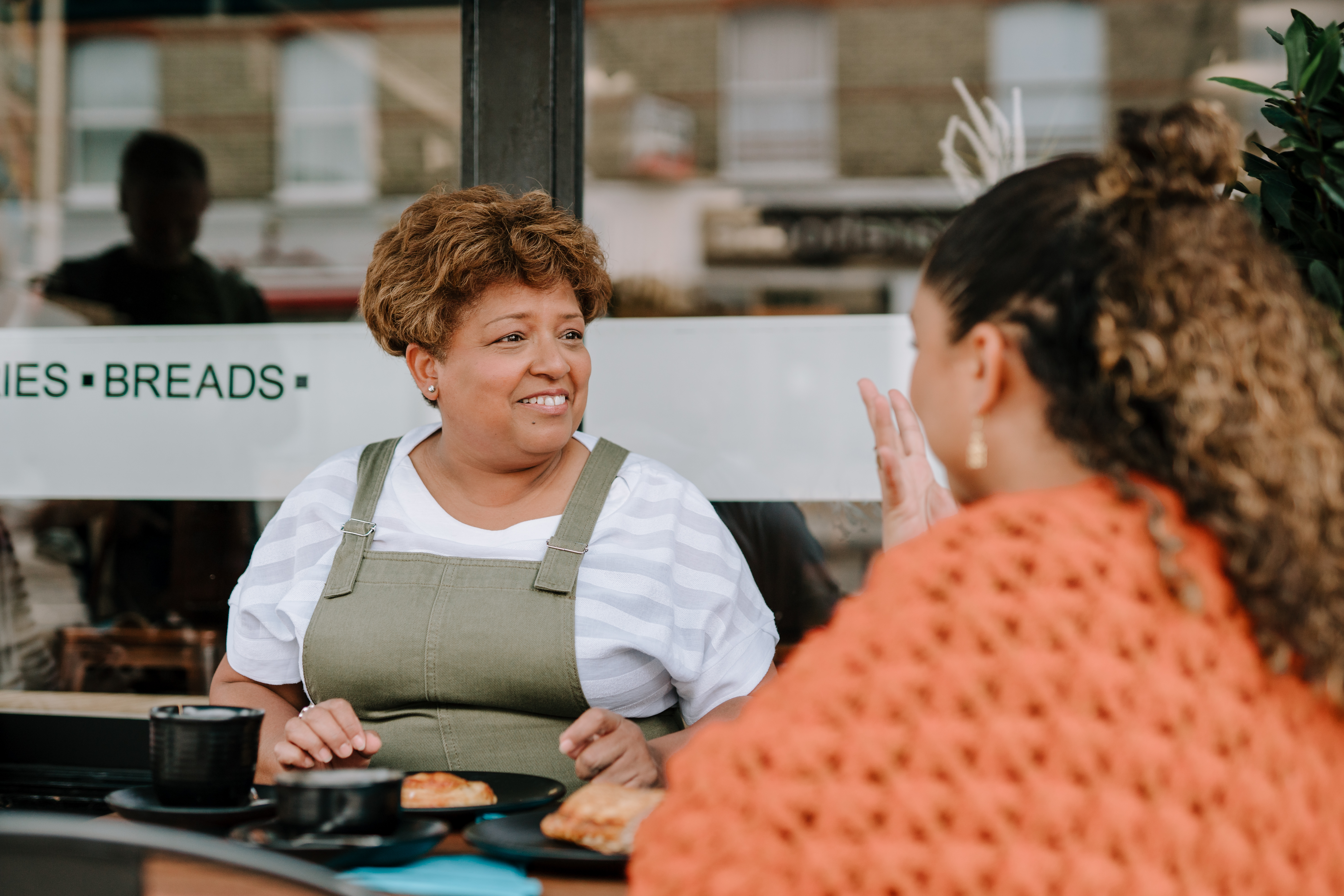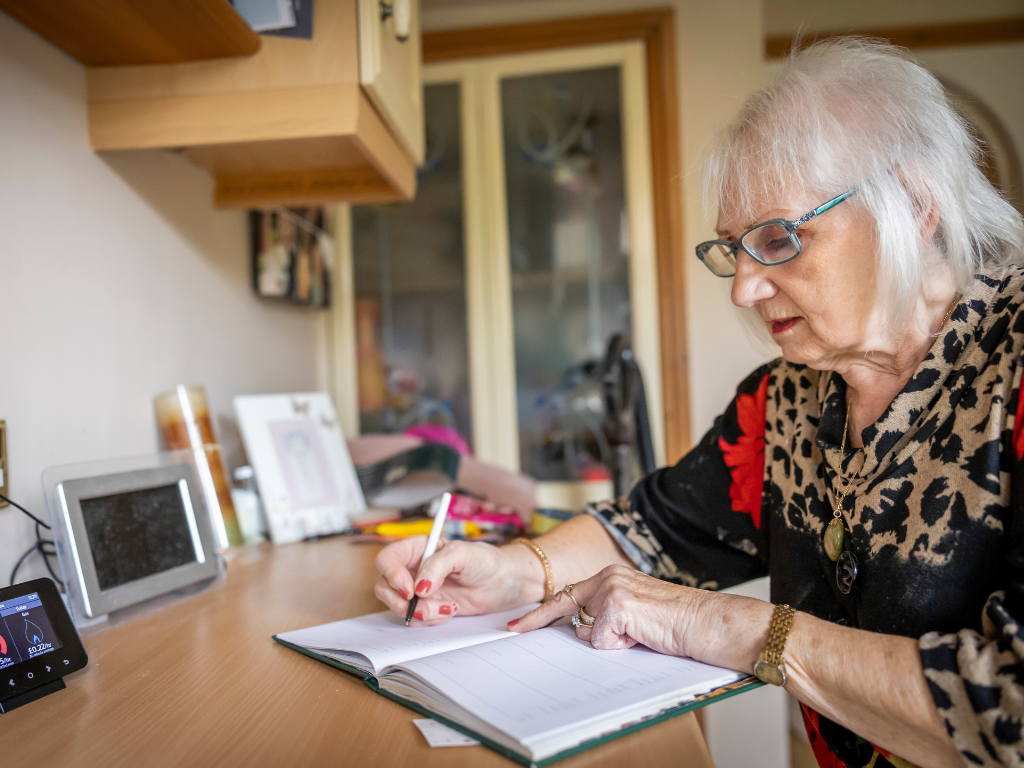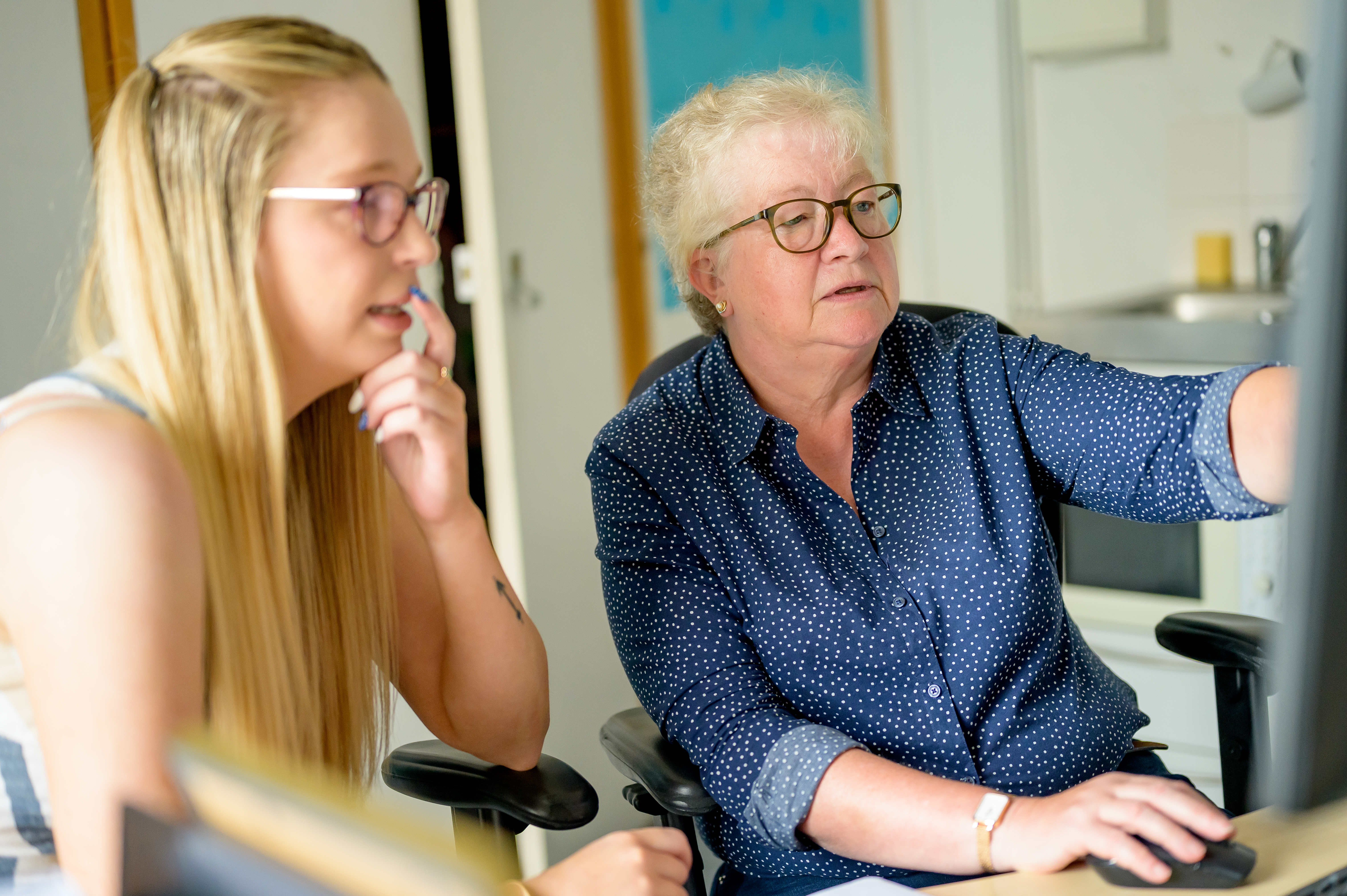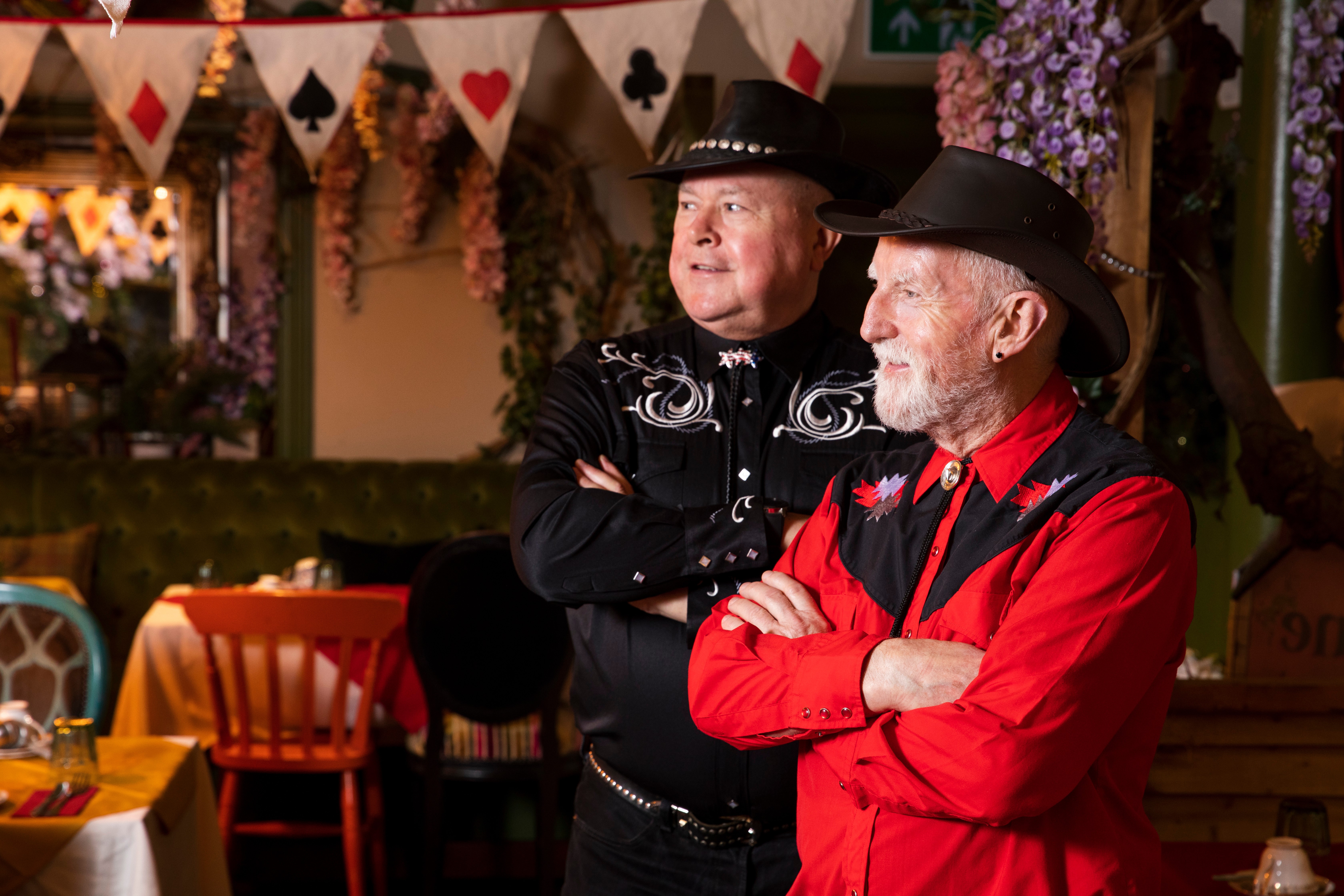Ageism is all around us, yet it's so ingrained in our daily lives that we barely notice it.
• Being told you should ‘act your age’, ‘slow down’ or ‘that’s ‘too young’ for you’.
• Becoming ‘unemployable’ in your 50s.
• Being told you’re 'surprisingly tech-savvy’ or ‘you shouldn’t wear that at your age'.
This isn’t a part of ageing. It’s ageism.
Getting older has its challenges. Being treated negatively because of your age should never be one of them.
Ready to be part of creating a future where everyone can age without limits? Find out quick and easy ways we can all challenge ageism, whatever our age.

Downloads
Access our assets to support the campaign, including downloadable posters, postcards and social media graphics. Use these tools to spread the word, engage your community, and make an impact - together, we can age without limits.
Resources

In conversations
Having conversations is a powerful first step to challenging ageism.
In your comms and writing
This guide is designed as a practical tool to support organisations, media and communications professionals.
In your images
Here are 4 top tips for taking and using age-positive photos.






